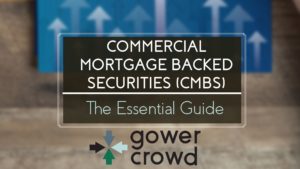FREE TRAINING
What is Real Estate Crowdfunding?
Learn how to build wealth and earn passive income in real estate while someone else does all the work.
REITs vs Rentals: What You Should Know
Are you looking for opportunities to invest in real estate but don’t know where to start? Here is what you should know about rental properties and REITs, the kind of income these investments can bring, and the responsibilities of such investments. Keep reading to find out which opportunities will get you the most bang for your buck.
What are REITs?
REITs, which are also called Real Estate Investment Trusts, are companies that either finance or own real estate that produces income across various property sectors. There are three categories of REITs; private, publicly traded, and non-publicly traded. These REITs allow people to invest in real estate portfolios through mutual funds, exchange trust funds (ETFs), or by purchasing company stocks. They were created to enable individuals to invest in real estate without directly buying an investment property.
Why Invest in REITs?
According to Nareit, there are approximately 145 million American citizens who have utilized their 401(K) or other funds to invest in REIT stocks, and there’s little wonder as to why. REITs offer a passive way to earn sizable income returns for investors without forcing said investors to take on the various responsibilities that come with being a landlord.
Great for Beginners
Investing in REITs is simple in comparison to investing in rental properties, and it doesn’t require any landlord know-how or expertise to end up being successful. Since investors aren’t directly involved in the operations, management, and maintenance of REITs, it’s a great starting point for those looking to enter the world of investment.
Low Investment Minimum
Choosing to invest in rental properties can range from tens of thousands to millions of dollars in acquisition and operation costs. However, shares in publicly traded and non-traded REITs can be purchased for as little as $1000 or less. This minimum investment cost is another reason REITs can be a great starting place for budding investors.
Passive Income
Choosing to invest in REITs passively allows individuals to earn an income without taking on the various responsibilities of a landlord. Providing investment capital while also allowing industry professionals to control that investment on your behalf is an easy and effective way to start bringing in a hassle-free income.
Diversification
A REIT can allow for individuals to invest in tens or even hundreds of properties across geographic locations, real estate sectors, and property types. Unless someone is wealthy enough to own various rental properties throughout the country or world, investing in a REIT is one of the only ways for individuals to achieve such massive diversification levels in their investment portfolio.
Regular Cash Flow
Shareholders of REITs have the potential to earn an income from equity and debt investments owned by the REIT. Investors are typically given dividend distributions, either monthly or quarterly, to receive this income. Dividend amounts can vary over time, depending on the REIT and the success of its investment.
Are you looking into investing but don’t know where to start? Take a look at Gower Crowd and see what they can do for you.
Why Invest in Rental Properties
While there are never any true guarantees for investing, owning a rental property can be very lucrative for those in possession of the knowledge, capital, and time it takes to manage them properly. They can produce a monthly income while also providing tax advantages, investment control, and growth of personal net worth for investors. However, it is critical to consider the various responsibilities of being the landlord of a rental property.
Related: What You Need to Know About Apartment Building Investing
Asset Appreciation
Alongside monthly rental payments from tenants, rental properties have the potential to earn more money over time through the process of appreciation. If the value of a rental property increases, investors can see a higher potential profit upon the property's sale. Ownership of a rental property gives investors the right to lease the property, as well as the right to collect on any appreciation earned once the property is sold.
Cash Flow
Investors and owners of rental properties are afforded a reliable monthly cash flow from tenants’ rent payments. The more units of a property that are leased, the greater the monthly income is for investors. This allows for multiple income streams and provides the chance for investors to diversify their earning abilities further.
Flexibility
As an investor in rental properties, you have the flexibility and freedom to make various decisions regarding your investment. Besides choosing how much you’ll be charging for rent, you’ll also have the power to determine the types of renovations you make and what companies you’ll work with to increase the property’s eventual resell cost.
Tax Deduction
The owners of rental properties can deduct their taxes from most of the expenses associated with managing said property. Legal fees, maintenance costs, taxes, and insurance plans are only some examples of the kinds of deductions that investors can make use of. Investors can also utilize depreciation of expenses by improving the property over time to lower their annual taxes.
Related: 7 Ways You Can Invest in Commercial Real Estate Online
What Makes a Good Rental Property
While there isn't any universally accepted definition of what makes a “good” rental property, several factors come into play when determining the kind of income a rental property can bring in. Some of these factors include property condition and value, location, market trends, property management, and the growth potential of cash flow.
REITs Vs. Rentals: Which One Should I Choose
Several factors come into play, depending on whether you choose to invest in REITs or rental properties. For those looking to make a passive income with the least amount of risk and who would like to avoid the responsibilities that come with being a landlord, REITs would be the more beneficial investment.
Those with the extra time and an entrepreneurial drive who want to be involved in a more active investment- including finding quality tenants, working with contractors, and dealing with property maintenance- than rental properties are the way to go. Either way, investors need to consider all of the necessary factors before making any significant financial decisions.
Are you interested in learning about the investment opportunities available to you? Check out Gower Crowd and see what they’re able to do for you and your investment future.
If you liked this article and would like to learn more about raising capital for real estate investing, check out some of the resources below:
If you have only just started in real estate development, have completed no deals, have no email list, but know you want the freedom and wealth being a real estate developer brings, then I suggest your first step is to start evaluating deals so you can recognize a good one when you see it.
Here’s where you should start. You’ll learn everything you need to know – the different types of real estate, different development strategies, how real estate cycles influence the market, and all about due diligence.
If you want to find deals and raise money for them so you can start your real estate development business, then learning how to conduct due diligence so you can pitch your deals better to investors is a great place to start.
If you’ve already purchased one or more real estate project and are seeing more opportunities than you can finance, then now is the time to start building your investor network so you can finance all your next deals quicker.
You’ve already got some momentum; now start finding and educating prospects about what you’re doing so you can build an email list of people to pitch to when you’re ready to raise money for your next deal.
This is what we build for private clients all the time – it’s called the Investor Acquisition System and you can access the entire program right here so you can find prospects, and convert them into being deep pocketed, repeat investors in your deals.
If you are a seasoned pro with multi-cycle experience, a substantial portfolio, a decent deal pipeline, and find yourself spending too much time raising equity capital because you’re still doing it in-person, then it’s time you put technology to work for you.
The wonderful thing about doing this is that you’re not going to be doing anything different than you’re already doing and, guess what, you’ll never have to sit through investor meetings again.
Sounds crazy I know, but I lay the whole thing out for you in this white board workshop where I personally show you exactly what it takes for you to transform your equity raising into a fully automated, capital raising machine so you can find new investors while increasing commitments from your existing network.
RELATED ARTICLES




